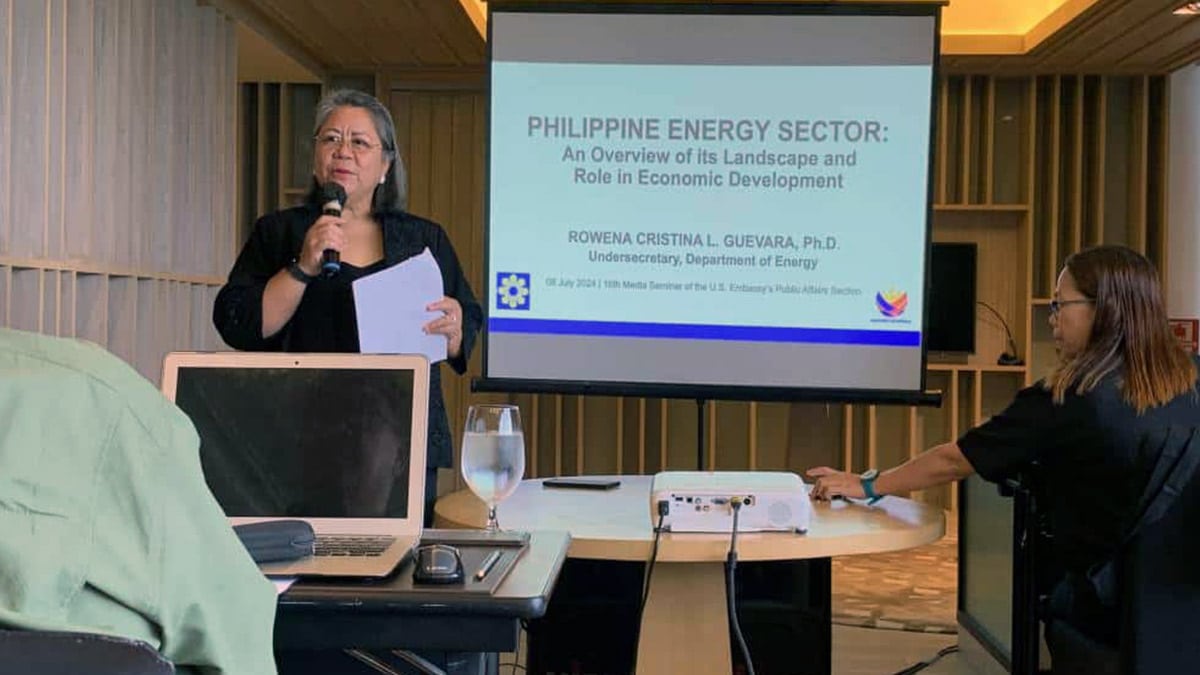PH needs P72 billion to achieve 100% electrification

ALL ABOUT POWER Energy Undersecretary Rowena Cristina Guevara gives a primer on the Philippine energy sector during the US Embassy’s 16th media seminar entitled “Powering Progress: The Path Toward the Philippines’ Clean Energy Transition” in Iloilo City. —JORDEENE B. LAGARE
ILOILO CITY — To achieve 100-percent nationwide electrification by 2028, the government would need to invest P72 billion, nearly three times the amount that the government has so far budgeted for the project, the Department of Energy (DOE) said.
Energy Undersecretary Rowena Cristina Guevara said on Monday that the agency is in discussions with the Department of Finance and the National Economic and Development Authority to obtain P50 billion in funding from multilateral lenders Asian Development Bank and World Bank.
READ: Marcos aims for 100% electrification by term’s end
DOE data showed that the household electrification level reached 93.12 percent as of March this year. However, this means that more than 2 million households in the country still currently live without electricity, Guevara noted.
While P72 billion is the estimated investment needed to energize remaining households through 2028, the government’s budget allocation for this project ranges from P3 billion to P5 billion annually or only up to P25 billion until 2028.
Article continues after this advertisement“We might need to secure loans because we have a budget deficit. We are unable to increase the budget suddenly,” Guevara said during the US Embassy in the Philippines’ 16th Media Seminar entitled Powering Progress: The Path Toward the Philippines’ Clean Energy Transition.
Article continues after this advertisement“We’re also thinking of government appropriations through DBM (Department of Budget and Management) to supply P72 billion from now until 2028,” she said.
READ: Coal-fired generators still Philippines’ top source of electricity
The long-term financing sought by the DOE will be used to implement various aspects of the electrification project, such as installing distribution lines and standalone solar home systems.
Multiplier effect
Productivity is seen to significantly improve once the remaining 2 million households are given access to electricity.
“If we are able to do 100-percent total electrification of the country, the economic benefit is P315 billion. That is (equivalent to) 1.8 percent of our GDP (gross domestic product),” she said.
According to the energy official, if access to electricity in households is increased to eight hours a day, average income and expenditure of the household will rise by 17.9 percent and 17 percent, respectively.
If households have electricity for eight to 16 hours per day, household income and expenditure will both climb by around 33 percent.
Meanwhile, having electricity for 16 to 24 hours a day will translate to a 49.4-percent increase in income and 52.2 percent in expenditure.
Under the 2028 Total Electrification Plan, the National Electrification Administration seeks to increase consumer connections under the service areas of 121 electric cooperatives by about 1.36 million. INQ